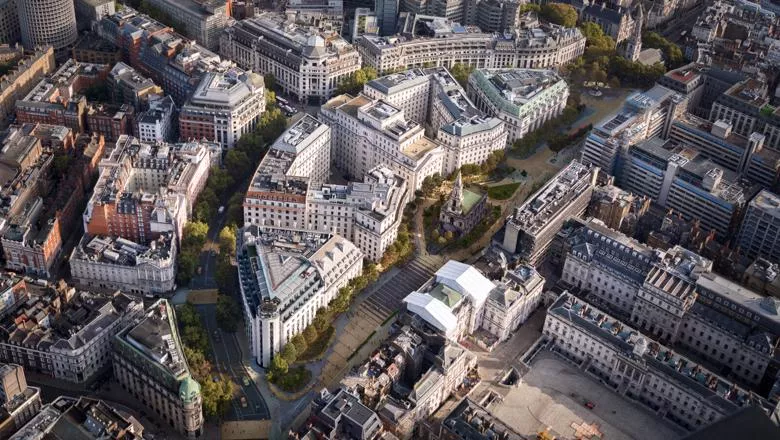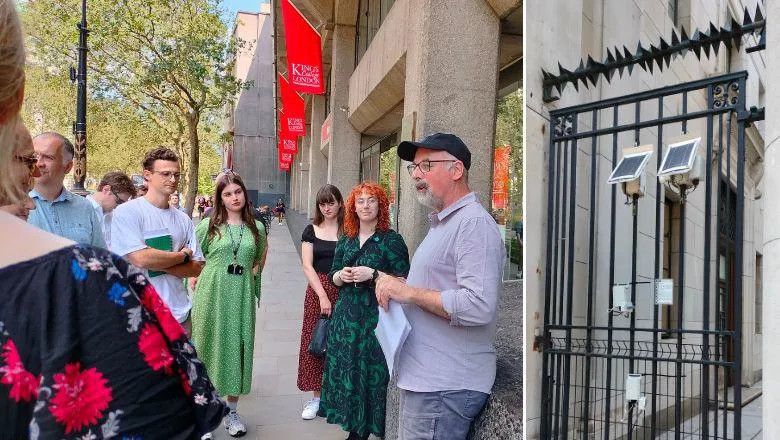Preliminary data from King's monitoring stations suggests significant reduction in noise and particulate air pollution thanks to the pedestrianisation of London's busy Strand Aldwych area.

On Clean Air Day in June, Professor Mark Mulligan, who leads the King's Strand Aldwych monitoring project in partnership with Westminster City Council, guided King's community and local businesses on a walking tour of the monitors set up in the area.
The transformed Strand Aldwych redevelopment officially opened in December 2022 and the latest findings, Professor Mulligan noted, are already starting to indicate the benefits.
Early data shows that there is a substantial reduction in noise and particulate pollution levels on the Strand and only a slight increase on the Aldwych, relative to background levels. We will be able to see the full picture over the coming year, as we complete the post-pedestrianisation data collection.
Professor Mark Mulligan, Department of Geography
Those joining the tour from local businesses also spoke positively about the pedestrianisation scheme, observing that people spend more time on the Strand, which is good for the business.
Data captured in November 2021 also showed that noise levels on the Strand had fallen by a quarter thanks to the pedestrianisation scheme.

Westminster Council's Strand Aldwych pedestrianisation scheme aims to transform the once polluted, traffic-dominated area of the Strand into a pedestrian-focused destination. Professor Mulligan, from the Department of Geography, uses a system of FreeStation air, noise and pollution monitors to gather reliable, detailed and local environmental data about the area.
Installed in May 2021, there are a total is 22 monitors in an area less than one-hectare, making it one of the densest networks of pollution sensors in the world.
The monitors are positioned on the rooftop of buildings in King's Strand campus, as well as around posts and gates in the local area. The network also consists of traffic and pedestrian counters to understand the traffic flow in the area and weather stations to understand airflow.
The FreeStation network is part of the ReSET project, which aims to understand the environmental, economic and employment impacts of nature-based solution investments, such as Westminster's Strand Aldwych pedestrianisation scheme. The data collected allow researchers to compare street level pollution before, during and after pedestrianisation, relative to background levels measured throughout the period at roof level.
The walking tour was organised by Northbank Business Improvement District (BID), who were involved in the redevelopment project.







